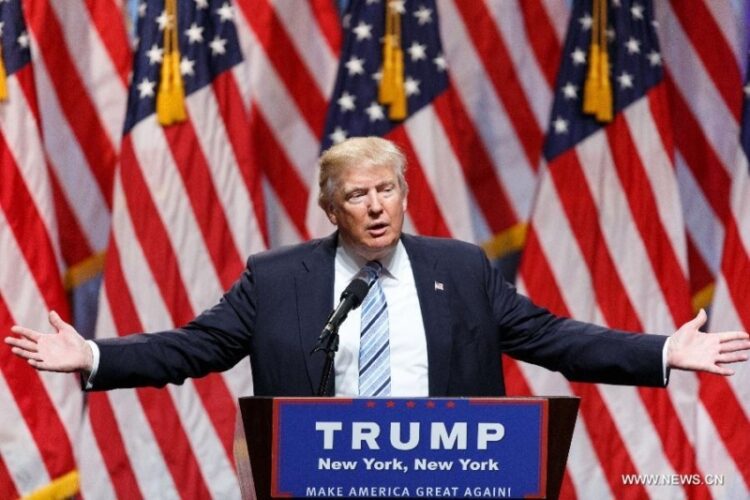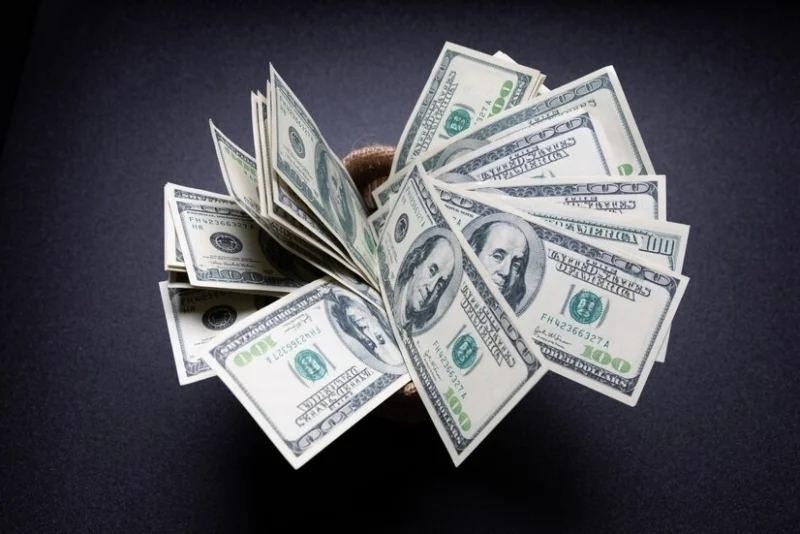Publisher: Maaal International Media Company
License: 465734
Trump’s economic policies point to a global trade war
اقرأ المزيد
Many countries are feeling uncertain about the economic policy that Donald Trump, the US President-elect, will pursue after he officially takes office on January 20.
American business leaders will also face confusion due to the expected global trade war, which will have a significant impact on them.
Tariffs
Tariffs are causing concern after Trump described them as a means of punishing countries for their trade deficit; he previously said: “The word tariff is the most beautiful word in the dictionary.”
Trump threatened to impose a comprehensive tariff of between 10 and 20% on all goods imported into America, while it will reach 60% on Chinese goods starting from his first day in office. He intends to impose a 25% tariff on all goods imported from Mexico and Canada.
Escalating tariffs will also constitute a major crisis that will further harm America’s neighbors and will likely lead to the dismantling of its free trade agreements with Mexico and Canada that were reached during Trump’s first term in office.
American shoppers will be hurt by higher prices and may face shortages, and some see Trump as using the threat of tariffs as a negotiating tool, but such a threat could lead to swift retaliation and quickly escalate into a global trade war.
The Gap with Europe
The US president-elect has also threatened to raise tariffs on European Union countries unless they increase their purchases of American oil and gas to narrow the trade gap with the United States, saying, “I have told the European Union that they must make up their enormous deficit with the United States by buying more of our oil and gas. Otherwise, the full tariffs will be applied.”
Trump has continued to use the threat of tariffs as a negotiating tactic with foreign countries he believes are treating the United States unfairly.
Reducing Trade
Trump’s plan, if implemented, could reduce trade between the United States and China by 70%, with hundreds of billions of dollars in trade redirected or eliminated altogether.
As for food, Trump intends to reduce the costs of this sector by imposing strict restrictions on imports of agricultural products, while economists warn that such a measure will lead to a similar response, which will greatly harm the American agricultural sector that depends on exports.
He also threatened to raise tariffs by 100% on the BRICS countries if they create a currency competing with the US dollar, after senior politicians in Brazil and Russia proposed creating a common currency for the BRICS countries in order to reduce the dominance of the US dollar in global trade.
Automakers fear
The president-elect’s pledge to impose comprehensive tariffs on all goods coming to the US could cause chaos for European automakers, especially the struggling German auto sector, which is among the most vulnerable.
Speaking during his election campaign in late September, Trump announced his desire to transform the German auto giants into American car companies, adding, “I want German car companies to become American car companies. I want them to build their factories here.”








